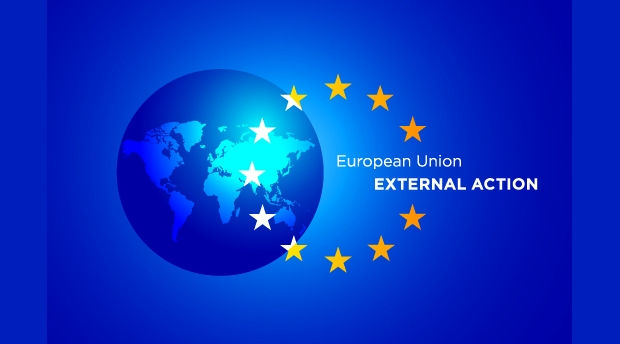Discussion on "McDonaldization" of society and culture - Seminar paper by Erasmus+ students in Split
- csbprojectitaly
- Dec 23, 2020
- 3 min read
Rasa Teivāne from Faculty of Engineering Economics and Management of Riga Technical University and Hako Šahman from School of Economics and Business, 2 Erasmus + students studying in Split, wrote this interesting work for the CSB Pilot Course.
Download the full article here
Introduction
The term globalization has many different definitions and is something that is not easily defined. The is not one precise definition and meaning that can explain this term. But basically it is a modern concept which can be analyzed from many points of view. Since here our main focus will be on society and culture – it should be said that, from a sociocultural point of view, globalization can be defined as a continuous and dynamic process of interaction between societies and local cultures in a global culture. Economic globalization refers to the international movement of goods, services, capital, technology and information.
Some arguments for globalization are advanced technology in many fields such as communication and transportation that, when combined with free-markets, can give goods, services and capital huge mobility. It makes the trade easier, resources are better used and utilized, many new opportunities are opened to different countries, can be used to reduced costs (economics of scale), international financial deregulation, better communication, better and more efficient allocation of global resources, it can increase efficiency and productivity of many countries, it can give developing countries and opportunity to improve their standards and quality of living.
Some arguments against globalization include lack of control over markets and corporations that are multinational, increased economic and social disparity, social inequality, "rich become richer and poor become poorer", labor rights may not be respected, exploitation of labor rights, child labor, not being sustainable, having negative impact on biodiversity and cultural heritage i.e. damaging the environment as a whole.
So when it comes to globalization it can go either way – the liberalization of international trade can give you a huge economic growth when foreign capital is invested in huge amounts (for example China in recent decades) or degradation of economic and social life where people are sinking even more into poverty (African countries).
Nationalism is defined as a system that aspires to be independent of other countries. Some are defining it as "a system created by people who think their nation is superior to all others". From the economic point of view, the characteristics can include that those countries tend not to be part of global organizations, they are focused on creating policies that are strengthening the local production and making the nation stronger as a whole. Their trade is usually based on protectionism with tariffs and quotas on foreign imports being higher than usual because of a desire to protect national interests.
Some of the most famous examples of nationalism of recent times include events like Russia's invasion of Ukraine in 2015, UK voting to leave European Union in 2016 and probably the most famous one the election of Donald Trump as the president of the United States of America in 2016.
Unlike globalism, that benefits multinational corporations, nationalism is prioritizing domestic businesses. They are advocating for stricter policies that will protect local production and industries (here an example would be when Donald Trump imposed tariffs on steel and imports from China). Economic nationalism is also strongly against immigration (nationalist argue that immigrants are taking jobs away from domestic workers) while globalists are strongly encouraging it and have a positive stance about the issue.
Many nationalists are arguing that globalism and liberalism would bring harm to the whole society but globalism and progressivism did bring many benefits: people are less likely to die from starvation, infectious disease and crime today than in previous generations. But taking into consideration the development of technology and the world becoming a globalized place, many ordinary people lost their jobs and felt left behind. Yuval Noah Harari argues that these people believe that solution lies in the past and not in the future and thus are seeking to return to previous ways of life and thinking. So nowadays, the dividing line in politics seems no longer to be between the left and the right but rather between global and national.
It seems that the current conflict between globalist and nationalist will be receiving more and more attention in many Western countries for the following years (probably even decades). Right now European Union is having many issues within the union and some of its members. It seems that some historical decisions will have to be made that will either make or break European Union that will certainly have a global impact and on many countries that are members and those that are not.
More comprehensive analysis of globalism, nationalism and what impact it has on society and cultures will be provided in the later parts throughout the project. Brief explanation of McDonaldization and why it is important is included in the next part. At the end a brief conclusion and overview of the whole topic will be provided.

.jpg)






Comments